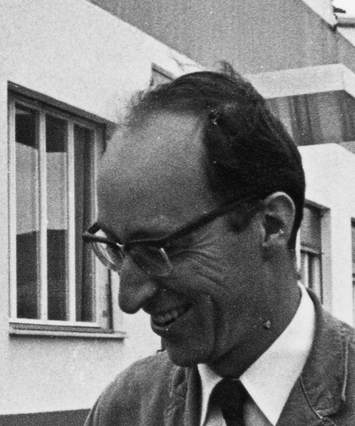By DEEPAK AJWANI
A series of debates on the moral challenges facing industry isn't every family business's way of celebrating its centenary. Nor does every employer think that sacking employees during a slump is 'too quick a fix'. But then, as the Swiss paper 'L'Hebdo' maintained in a recent headline, Jacky Brandt is 'not like other bosses'.
In 1897 Brandt's grandfather, Albin, set up an ironworks in a barn in Bulle in western Switzerland. He built pylons for the first overhead electricity lines and for railways. His son diversified into wrought ironwork.
When Jacky Brandt took over in 1970, he began to move into light metal construction - doors and windows, conservatories and façades. He also took another radical decision - to consult his 30 or so employees about issues facing the business.
'By nature I am someone who likes to make decisions on my own and to have an area where I am in control,' he says. 'So it was difficult.' But it paid off. 'By involving the staff in the decision-making process, a real feeling of confidence and creative liberty was born.'
It made business sense too, he says. In the early Seventies he was keen to expand the firm's window production and to build a new unit for this purpose. The staff were not enthusiastic and he decided not to go ahead. The next year the first oil crisis hit and orders fell.
On another occasion, when recession demanded economies, his first thought was wage cuts. His employees resisted this - but came up with a number of alternatives, including cutting back from five to four weeks' paid holiday each year.
In an industry where there are 'too many dogs chasing too few bones' Brandt has also sometimes found it useful to be open with his competitors. One day, over lunch with some colleagues, he mentioned a temporary shortage of work in his workshops. 'Their reactions were unexpected: a few days later, one offered to employ two of my staff for a period, while another asked me to take over an order which he could not complete by its deadline.' Last spring, when his own workshops were overburdened, he reciprocated.
The idea of celebrating the firm's centenary with three one-day debates hit Brandt like 'a bolt from the blue'. He sees it as a way of sharing the firm's ethos and experiences. The events, held last June, September and February, focussed on corporate citizenship, relationships between the two sides of industry and personal business life. They were covered by regional, business and trade union papers. 'The exciting thing about this meeting,' the business paper 'Enterprise Romande' wrote of the second session, 'was that everything that was said and described reflected real experience.' The latest - Do you have to burn yourself out for your business? - drew 150 people, half of them young.
For the last 25 years Brandt has taken part in the annual industrial sessions at the MRA centre in Caux, Switzerland. It was there, he says, that he learned the practical application of moral values. He speaks of the 'permanent dilemma' between 'material and financial efficiency' and 'human dignity'.
When his father opened the firm's present buildings in 1965, he said, 'Dishonesty in business life is a sign of incompetence.' Today Brandt adds,'The integrity of a firm is indispensable to its survival.'
By Deepak Ajwani
English



